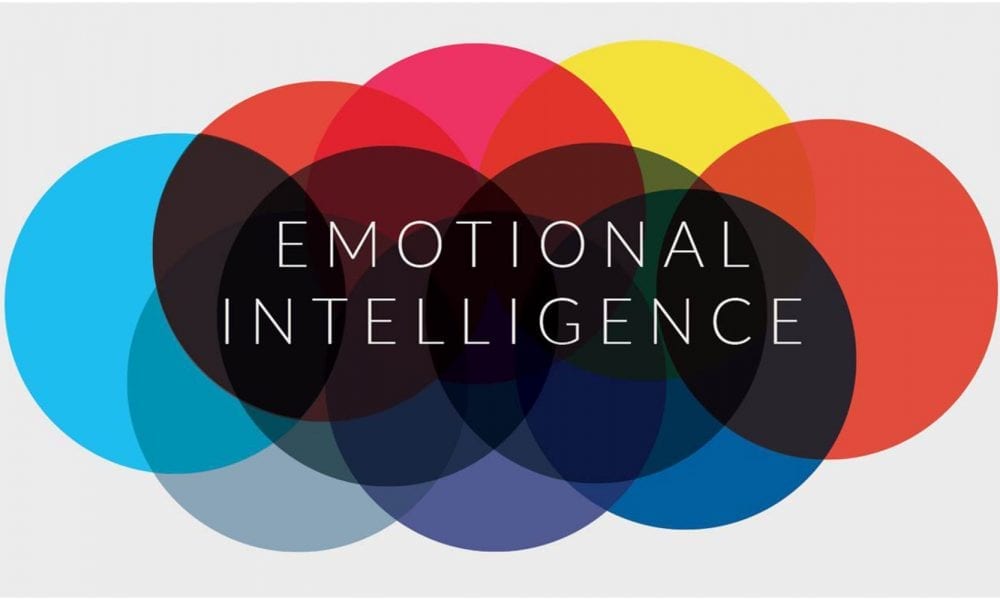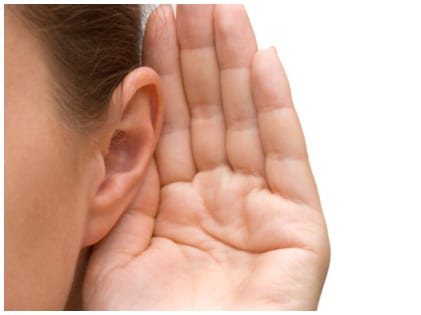
Do You Have a High EQ?

You’ve heard of EQ before, and you know it’s a term that describes emotional intelligence. Emotional intelligence is your ability to regulate yourself and to manage the people around you and basically to achieve success. Research has proven that there is a link between emotional intelligence and personal and professional success. Not everyone is fortunate enough to be born with a high EQ. But fortunately, EQ is possible to acquire and to hone. These are five signs that indicate that you have a high EQ, in easy-to-identify daily situations.
Criticism
 One hallmark of a high EQ is certainly self-awareness. Self-awareness is a concept to describe a deep understanding of yourself and what makes you tick. This means what triggers your emotions like happiness, interest, anger, and boredom. This self-awareness is what makes it possible for people to appraise themselves with clarity. This is more so important to do so with honesty.
One hallmark of a high EQ is certainly self-awareness. Self-awareness is a concept to describe a deep understanding of yourself and what makes you tick. This means what triggers your emotions like happiness, interest, anger, and boredom. This self-awareness is what makes it possible for people to appraise themselves with clarity. This is more so important to do so with honesty.
What this has to do with emotional intelligence is that when someone with high EQ receives criticism. They don’t go into an emotional tailspin. Instead, note the criticism, analyze it, and correct it, without blame, excuse, denial, and anxiety.
Open-mindedness
Self-awareness also ties into this point when it comes to emotionally intelligent people. This is because people with high emotional intelligence can listen to an immediate situation without responding to judgment. This means they don’t automatically dismiss ideas simply because they are unlike their ideas. Characteristics like this make people with open-mindedness the go-to person. There are challenges, troubles, issues, or imply when a sympathetic ear is required.
If you are open-minded, you can probably relate and have experienced this first-hand. You probably don’t hang around making small talk all day long, and neither do you tolerate negative personalities of you are of this type. You tend to help people find solutions rather quickly.
Good Listeners
 Being able to listen well is a skill that few people have. It is a skill that requires development. A person with excellent listening skills has a developed listening structure separating facts from personal interpretations as they hear a story or relay of events. Highly emotionally intelligent people can identify the feelings that hamper or shut down their ability to listen well.
Being able to listen well is a skill that few people have. It is a skill that requires development. A person with excellent listening skills has a developed listening structure separating facts from personal interpretations as they hear a story or relay of events. Highly emotionally intelligent people can identify the feelings that hamper or shut down their ability to listen well.
If you fall under this category, then you have developed the ability to divorce yourself from those hindering feelings to remain open to hear what’s being said behind the actual words.
No Sugarcoating
Having high emotional intelligence means recognizing emotion in other people. Being aware of emotions in other people doesn’t translate into shying from the truth or engaging in the use of trickery to soften the blow of challenging feedback. Emotionally intelligent people know the importance of the hard fact is heard.
This doesn’t mean to say that an emotionally intelligent person has such blatant candor that the conversation is shut down. Instead, you will have a relaxed conversation with a clear message. This is an especially important trait in superior positions in the workplace, where people must give honest feedback and constructive criticism.
They Apologize
 People who possess high emotional intelligence don’t waste their time and effort in proving that they aren’t wrong if they are aware that they are. Once an emotionally intelligent person realizes that they are wrong, they do not search for excuses or shift the blame.
People who possess high emotional intelligence don’t waste their time and effort in proving that they aren’t wrong if they are aware that they are. Once an emotionally intelligent person realizes that they are wrong, they do not search for excuses or shift the blame.
Instead, you will find that they offer an honest and straightforward apology so that things can get back on track. If you exhibit this trait, you will have an easy time admitting to your mistakes and moving on smoothly without having to spend energy on defending yourself to no avail.
These are only a few of the indicators to look out for in an emotionally intelligent person, but there are easily identifiable in everyday situations. Consider them quick tests that you can witness. In most of these cases, you would more easily have these situations in a work environment. It is essential to understand whether a person has high or low levels of emotional intelligence in both personal and professional life. It can help you know a person’s behavior and reactions in different situations. Identifying with your level of emotional intelligence can help you develop better emotional intelligence. You can also use it to help others learn from you if you have a high EQ.
More in Mental Health
-
`
Is Swimming in Cold Water Good for You?
Swimming is a beloved activity that provides numerous physical and mental health benefits. Swimming can be a fantastic workout, whether you’re...
November 15, 2023 -
`
Unlocking the True Benefits of Detox Water
Detox water has taken the health and wellness world by storm, promising a wide range of benefits that go beyond ordinary...
November 7, 2023 -
`
How Tom Brady Shed 10 lbs After Retirement
One of the NFL’s most celebrated athletes, Tom Brady, has always been a topic of discussion. Brady never fails to surprise,...
November 1, 2023 -
`
AI’s Hidden Toll on Our Brains
Artificial Intelligence (AI) has permeated almost every facet of our lives, from virtual assistants and recommendation algorithms to autonomous vehicles and...
October 24, 2023 -
`
What to Drink During a Workout
When it comes to getting the most out of your workout, proper hydration is key. What you drink during exercise can...
October 17, 2023 -
`
Wearable Technology Applications in Healthcare
The world of healthcare is evolving at an unprecedented pace, and wearable technology is one of the driving forces behind this...
October 10, 2023 -
`
Initiating and Integrating Exercise in Daily Life
Incorporating exercise into our daily lives is essential for maintaining optimal health and well-being. However, initiating a fitness routine and seamlessly...
October 10, 2023 -
`
Jason Momoa’s Workout Routine for Iconic Aquaman Look
We all remember the moment: The big screen lights up, waves crash, and out emerges Jason Momoa as Aquaman, with his...
October 8, 2023 -
`
Crying: The Benefits on Mental Health
In a world that often champions stoicism and emotional restraint, shedding tears is sometimes dismissed as a sign of vulnerability. However,...
September 26, 2023















You must be logged in to post a comment Login